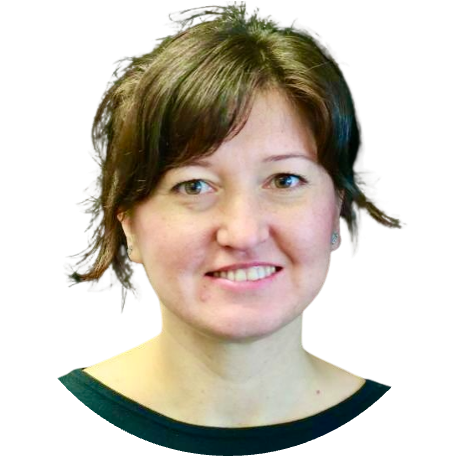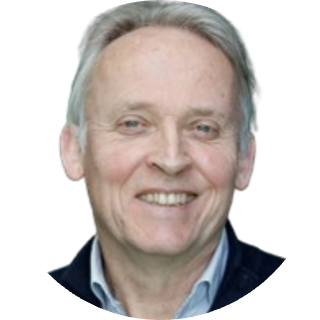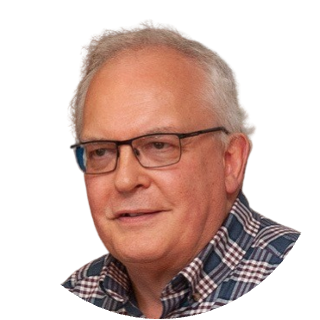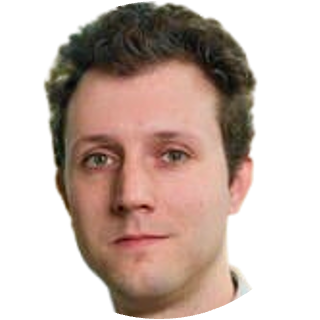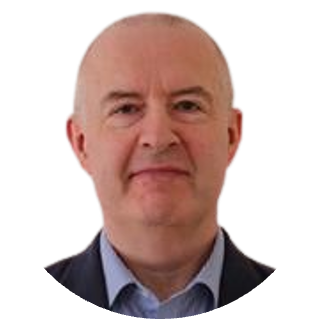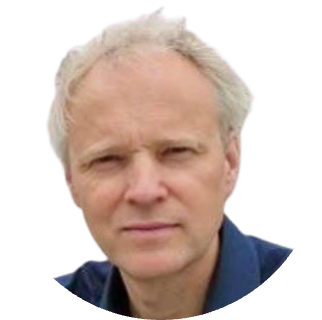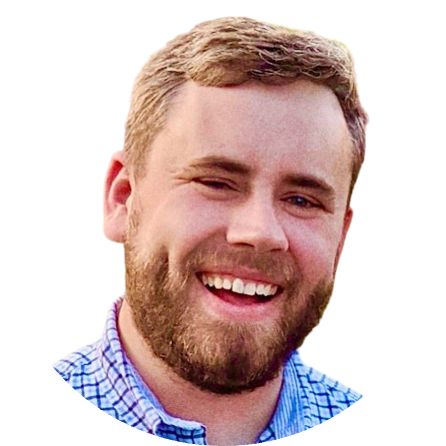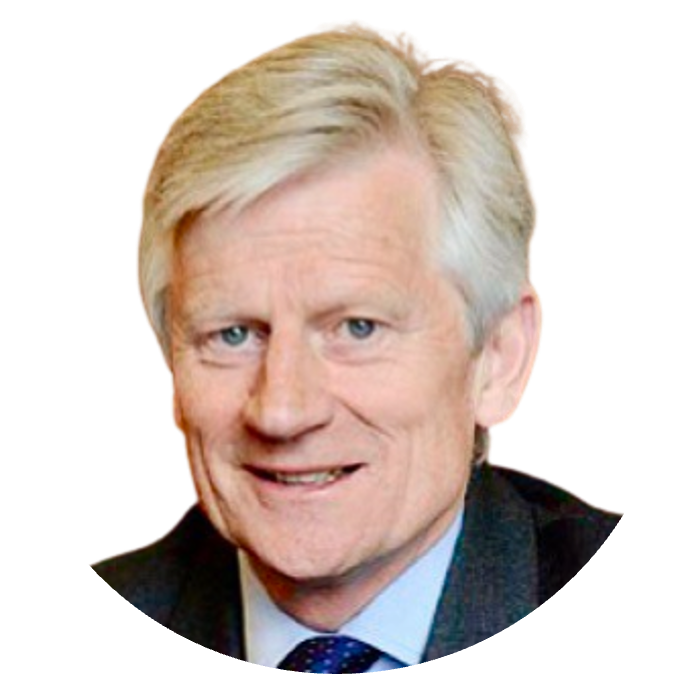LEADERSHIP
Advanced research
Our interdisciplinary team brings together advances in AI, physics, engineering and neuroscience.
Our interdisciplinary team brings together advances in AI, physics, engineering and neuroscience.
John is most noted for his work on neural networks and machine learning. He is Chair of AI at UNESCO and Chair of Computational Statistics and Machine Learning at University College London (UCL). From 2014-2021, the UK's Research Evaluation Framework (REF) ranked John's Computer Science Department at UCL as the UK's leading computer science research department. His research into neural networks in the 1990s and early 2000s 'rebirthed' the world's approach to fundamental AI research and contributed significantly to the development of deep learning and reinforcement learning techniques for fundamental AGI research. In 2015, John co-founded the Alan Turing Institute, the UK's national institute for data science and artificial intelligence. Then in 2018, he co-founded the UCL Centre of Artificial iIntelligence, one of the world's leading AI research organizations. John collaborates with multiple research organizations, including Google Deepmind, and coordinates multiple fundamental research initiatives. Most recently he has been working with Global 2000 and academic partners on the world's largest human-centered AI research program. John obtained a PhD in Mathematics at Royal Holloway, University of London.
Jan-Pete is one of the world's leaders in the fundamental research and development of computer vision algorithms for mapping. He has led interdisciplinary teams on complex software and hardware development projects for the UK's Ministry of Defence, NASA, the European Space Agency, DARPA and the UK Space Agency. His expertise includes advanced algorithms for super-resolution restoration, automated 3D surface retrieval (including clouds and the surfaces of the Earth, Mars and the Moon) and solid-earth deformation measurement (radar interferometry and SPOT), detection of PAH including human bacteria and viruses and astrobiological signatures on other planets, automated extraction of global environmental information (BRDF/albedo, aerosols, cloud-top heights, 13CH4), automated interpretation of aerial and space imagery for building and vegetation extraction, animated visualisation of global change, the exploitation of GPU, parallel, cluster and cloud processing technology and development of technology for big data analysis and sharing geographic knowledge through web-GIS. His recent open source software releases and open access data product releases include publishable DOIs from STFC-CEDA and ESA-PSA-GSF. Jan-Peter received a Ph.D. in Planetary Meteorology/Astronomy from University College London and multiple awards from NASA, UK Space Agency and the European Space Agency.
David is a world leading expert in Bioinformatics and Structural and Molecular Biology. His research and development aims to apply state-of-the-art machine learning techniques to problems in the life sciences, particularly those driven by the post-genomic era leading to the discovery of novel drugs. David's main research interests include protein structure prediction and analysis, simulations of protein folding, applications of Hidden Markov Models, transmembrane protein analysis, machine learning applications in bioinformatics, biological text mining, de novo protein design methodology, and genome analysis including the application of intelligent software agents. He is a part of the Google Deepmind team that developed the AlphaFold program and he has authored a number of bioinformatics applications including THREADER, GenTHREADER, PSIPRED and MEMSAT. He is also one of the original co-authors of the CATH protein structure classification scheme. David received his B.Sc. in Physics from Imperial College, M.Sc. in Biochemistry at King's College London and PhD in Computational Biology at University College London.
Professor Chris Watkins is widely known for his contributions to the field of machine learning, particularly for his foundational work in reinforcement learning. One of his most notable contributions is the development of Q-learning, a model-free reinforcement learning algorithm, which has become one of the most influential algorithms in reinforcement learning and is widely used for training agents in environments where they must learn optimal behaviors over time. Chris' research interests include reinforcement learning, decision theory, machine learning algorithms, and the theory of learning systems. He has also worked on broader topics such as theoretical aspects of learning from data, learning control systems, and the application of these techniques in practical domains. Chris is a Professor of Machine Learning at Royal Holloway, University of London. Chris graduated from King's College, University of Cambridge with a PhD in Computer Science.
Kamil is the inventor of NestJS, the Node.js framework for building enterprise-grade, server-side applications on top of TypeScript. With millions of downloads, NestJS is the world's fastest growing Node.js framework. Kamil is also a Google Developer Expert (GDE) at Google, specialising in Angular, the TypeScript, open-source web application framework. Kamil graduated from Politechnika Śląska w Gliwicach, Poland with an MSc in Computer Science.
Mike is a Developer Expert at Google specialising in Google's Angular TypeScript open-source web application framework. He created NgRx, the framework for building reactive applications in Angular. Ryan builds web applications across multiple industry enterprise verticals. He is an advocate for building web apps using functional reactive programming and serves as a core contributor to the NgRx project.
David was previously the Director of Operations for the UK's Ministry of Defence (MOD). He was also the Director General of the European Union's Military Staff and the Commander of the European Union's Military Force in Bosnia during a career as a senior military commander in global hotspots. David later served for seven years as the Gentleman Usher of the Black Rod in the UK's Houses of Parliament, overseeing the day-to-day operations of Parliament. He has since held senior advisory and executive roles in the industrial chemicals and gases industry, as well as in the enterprise software sector. In 1996, David received a CBE from Her Majesty the Queen for his work in stabilising and reconstructing post-war Bosnia and for his role as the UK's negotiator in the Bosnia peace talks. In 2006, he was awarded a CMG for his international work in the Balkans. David is a TV and radio commentator on parliamentary and international affairs and he lectures at Cambridge, Harvard, and Yale universities. David is a graduate of Law at Cambridge University.
Steve is an expert on U.S. public policy and regulatory law focusing on international trade, foreign regulatory issues and foreign asset recovery. He works with U.S. governmental entities and corporations across multiple industry verticals on government contracts, public policy, and regulatory and government affairs. He also advises corporations and U.S. State agencies on their advocacy efforts before U.S. Congress regarding legislative and regulatory compliance and on various interagency rulings issued by the U.S. Office of Management and Budget. Steve's extensive government and public policy credentials include working for The White House Office of Management and Budget, the Federal Trade Commission and the U.S. House of Representatives. Steve graduated with a Bachelor of Science from George Washington University and a Doctor of Law (JD) from Creighton University School of Law.


